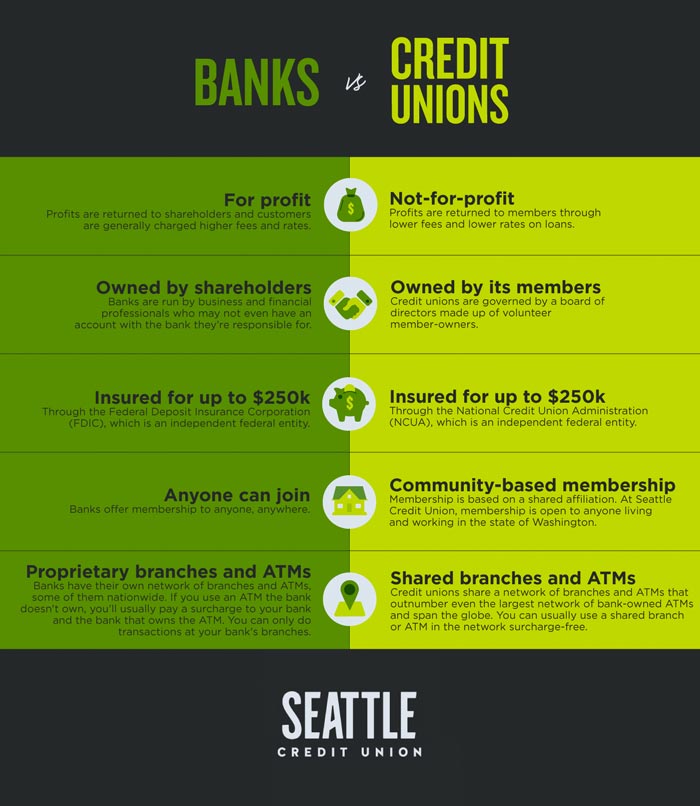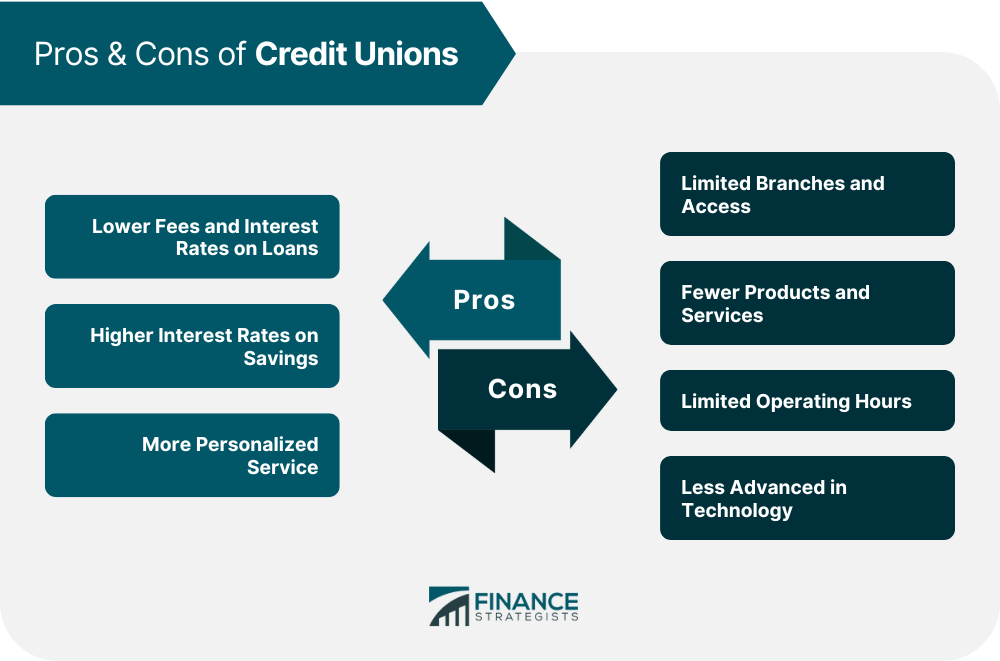Wyoming Credit Union: Trusted Financial Solutions for each Demand
Wyoming Credit Union: Trusted Financial Solutions for each Demand
Blog Article
The Ultimate Overview to Understanding Cooperative Credit Union

Cooperative credit union stand as distinct financial entities, rooted in concepts of shared assistance and member-driven operations. However, past their foundational worths, recognizing the complex workings of cooperative credit union entails a deeper expedition. Unraveling the complexities of membership qualification, the evolution of services supplied, and the distinct benefits they bring needs a comprehensive assessment. As we browse through the ins and outs of credit history unions, an insightful journey awaits to lose light on these member-focused establishments and how they differ from conventional financial institutions.
What Are Credit Score Unions?
Cooperative credit union are member-owned banks that provide a variety of banking services to their members. Unlike typical banks, cooperative credit union operate as not-for-profit companies, implying their main emphasis is on serving their members instead of maximizing profits. Members of a lending institution usually share a common bond, such as working for the same company, belonging to the same community, or belonging to the very same company.
Among the crucial advantages of cooperative credit union is that they often use higher rate of interest rates on interest-bearing accounts and lower rate of interest on loans compared to banks. Credit Unions in Wyoming. This is due to the fact that lending institution are structured to benefit their members straight, allowing them to pass on their incomes in the kind of much better rates and fewer fees. Furthermore, lending institution are understood for their personalized customer care, as they focus on building connections with their participants to recognize their unique financial demands and goals
History and Evolution of Cooperative Credit Union
The origins of member-owned financial cooperatives, known today as cooperative credit union, trace back to a time when areas looked for options to typical financial establishments. The concept of credit scores unions stem in the 19th century in Europe, with Friedrich Wilhelm Raiffeisen typically credited as the pioneer of the cooperative financial movement. Raiffeisen founded the initial acknowledged cooperative credit union in Germany in the mid-1800s, emphasizing community support and self-help concepts.
The development of credit report unions proceeded in North America, where Alphonse Desjardins established the initial lending institution in Canada in 1900. Soon after, in 1909, the very first U.S. cooperative credit union was formed in New Hampshire by a group of Franco-American immigrants. These early lending institution operated on the basic concepts of common aid, autonomous control, and participant ownership.
Gradually, lending institution have expanded in appeal worldwide as a result of their not-for-profit structure, concentrate on serving participants, and providing affordable economic items and services. Today, cooperative credit union play an important function in the monetary industry, giving community-oriented and available financial options for businesses and individuals alike.

Subscription and Eligibility Criteria
Subscription at a credit score union is commonly limited to people satisfying specific eligibility requirements based on the establishment's beginning concepts and regulatory demands. Some credit score unions might only serve people that live or function in a particular area, while others might be customized to staff members of a certain company or participants of a particular association.
Additionally, lending institution are structured as not-for-profit companies, suggesting that their main goal is to serve their members instead of create profits for shareholders. This focus on participant solution typically converts right into more individualized focus, reduced costs, and competitive rates of interest on finances and savings accounts. By satisfying the qualification criteria and becoming a member of a credit history union, people can access a variety of monetary items and services customized to their certain requirements.
Providers and Products Used
One of the key elements that establishes credit rating unions apart is the diverse array of monetary solutions and items they supply to their participants. Debt unions typically supply conventional financial solutions such as savings and inspecting accounts, lendings, and credit report cards.
Additionally, cooperative credit union often offer convenient online and mobile financial choices for members to quickly handle their financial resources. They may supply perks such as common branching, enabling participants to access their accounts at various other cooperative credit union across the nation. Some cooperative credit union likewise supply insurance coverage products like vehicle, try this website life, and home insurance policy to aid members shield their assets and liked ones.

Benefits of Banking With Cooperative Credit Union
When thinking about monetary establishments, checking out the advantages of financial with credit scores unions reveals unique advantages for members looking for individualized service and affordable prices. Unlike large financial institutions, debt unions are member-owned and prioritize structure strong partnerships with their participants. Generally, banking with a credit union can supply a more individualized, cost-effective, and member-centric financial experience.
Conclusion
Finally, lending institution attract attention as member-owned banks that focus on serving their members over maximizing revenues. With origins going back to 19th century Europe, lending institution adhere to concepts of mutual support and participant possession. They supply an array of financial services and products, including standard financial solutions, investment alternatives, and affordable rates of interest. Membership eligibility criteria are particular and mirror a community-oriented approach, providing customized client solution and a member-centric economic experience.
Credit history unions are member-owned monetary organizations that provide a range of financial services to their members. The concept of credit history unions originated in the 19th century in Europe, with Friedrich Wilhelm Raiffeisen frequently attributed as the leader of the cooperative financial motion.The development of credit score unions continued in North America, where Alphonse Desjardins established the initial credit union in Canada in 1900. Credit rating unions normally supply conventional financial solutions such helpful resources as savings and examining accounts, fundings, and credit score cards.When thinking about financial organizations, exploring the benefits of financial with credit score unions exposes distinct advantages for participants seeking personalized service and affordable rates.
Report this page